Lens surgery
If a laser treatment is not possible or not appropriate, the implantation of a supplementary lens or the replacement of the natural lens by an artificial lens may provide a safe and permanent correctrion of your sight defect.
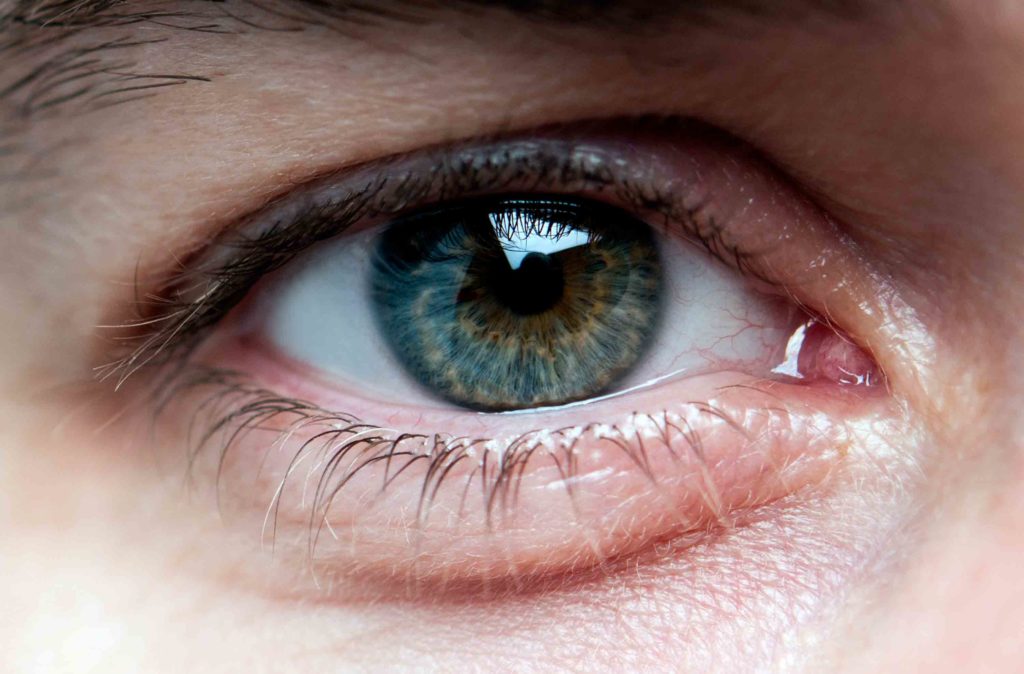
Implantable contact lens: EVO Visian ICL
In case of very pronounced visual defects, eye laser surgery reaches its natural limits (e.g. because of the individual thickness of the cornea). In these cases, an implantable contact lens is the optimal solution to correct your eyesight defect.
Contrary to normal contact lenses which are seated on the surface of the eye (on the cornea), the ICL is placed between the iris (the colored part of the eye) and the natural lens of the eye.
The implantation is a pain-free ambulatory intervention and lasts only about 15 minutes per eye. The eye is rendered insensitive with drops (no injection). Since the ICL is small and soft, it can be introduced surgically through a tiny opening (ca. 2.5 mm).
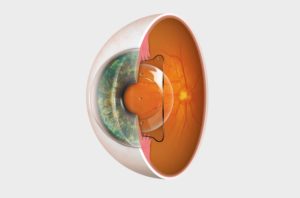
After the surgical implantation, the ICL is solidly anchored in the eye and protected – it needs neither cleaning nor a replacement. It is not felt or seen and can remain in the eye permanently. The ICL possesses an excellent tissue tolerance, since it is made of high-grade collamer which is not perceived by the human organism as a foreign body.
Thanks to an innovative technology and a fast healing process, which is further stimulated by the application of special eye drops, the eyes can rapidly recover after the intervention, and after a few days an improvement in visual acuity can already be observed.
The surgical success (or visual result) can be estimated in a highly precise way, and the intervention is reversible – that is, the lens can be surgically removed from your eye without further consequences.
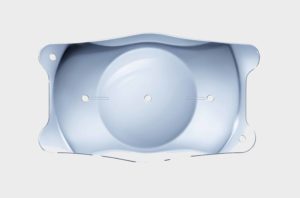
Properties of phake lenses:
- Medium to very pronounced or complicated sight defects can be corrected durably and with great precision
- Astigmatism can also be corrected, by using toric artificial lenses
- very pronounced eyesight defects can often also be corrected in combination with a laser treatment- – The healing phase is very short
- The treatment is reversible: the artificial lens can be surgically removed again
- Artificial lenses have been surgically implanted for over 20 years, and hence the operative experience of the specialists of the eye center Dr. Aus der Au is considerable
- The material used for the artificial lenses is characterized by its excellent tissue compatibility
Spectrum of the corrections with implantable ICL lenses
Depending on its type, an artificial lens permits a correction of -1.00 to -24.0, hyperopia of +1.00 to +12.0 diopters and astigmatism to 7.5 diopters. In combination with a laser treatment even more pronounced sight defects can be corrected.
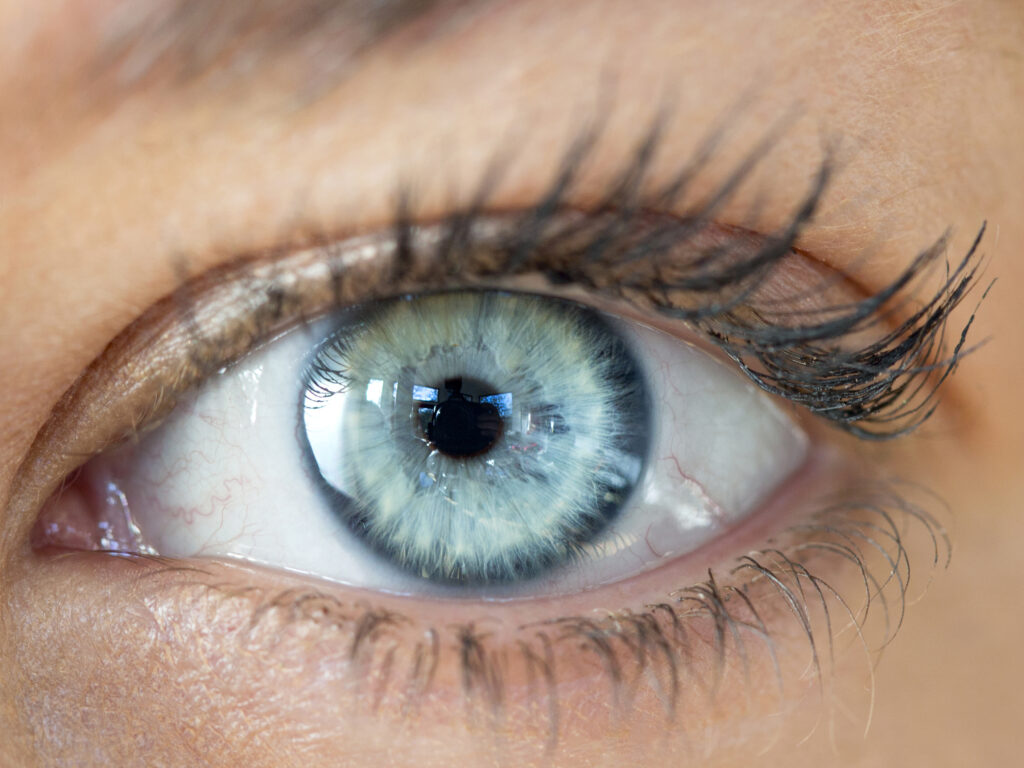
New artificial lens for the correction of presbyopia:
IPCL (implantable phakic contact lens)
Your presbyopia and your refractive error may finally be easily and quickly surgically corrected by a novel lens implant. Even marked astigmatism may be compensated for.
Laser surgery of the eye naturally has its limitations in the presence of high refractory errors and concomitant presbyopia (e.g. due to individual corneal thickness). The implantable contact lens «IPCL» is the optimal solution for correction of your visual defect in such cases.
The IPCL (implantable phakic contact lens) is made of a high-quality, time-tested hybrid acrylic which exhibits long-term stability. The material is stable and biocompatible and prevents the occurrence of undesirable reactions in the eye.
Prolonged or intense exposure to UV light may damage your eyes and increase the risk to eye diseases such as cataract or retinal changes. The high-quality IPLC material contains a UV filter which protects the sensitive tissue of your eyes against harmful UV rays.
All IPCLs have aspherical optics which allow the best possible quality of vision and contrast sensitivity.
The shape and size of each IPCL is adapted individually to your eyes. The IPCL can correct short and long-sightedness, astigmatism and presbyopia.
The IPCL is a soft, implantable lens which may be placed in your eye in addition to the natural lens. This only requires a small incision in the cornea which does not require suturing. The IPCL offers very good quality of vision with predictable results. The IPCL remains permanently in the eye once implanted, but may be exchanged or removed.
The treatment is painless and is undertaken on an outpatient basis under local anaesthesia (no injection). This is a minimally-invasive procedure and lasts about 15 minutes. You may go home (accompanied by someone) after spending a few hours in our eye centre.
The eyes recover quickly after treatment thanks to advanced technology and a rapid healing process backed by special eye drops, so that an improvement in vision is perceived just a few days later.
The success of the operation (i.e. the visual outcome) may be calculated very accurately and the procedure may also be reversed – the lens may be surgically removed from your eye without any consequences.
Artificial lenses have been successfully used worldwide by millions of people with refractory errors for more than 20 years. The IPCL is also suited for people with thinner corneas or dry eyes.
Unlike normal contact lenses, which lie on the surface of the eye (the cornea), the IPCL is implanted between the iris (the coloured part of the eye) and the natural endogenous lens and is not visible from the outside.
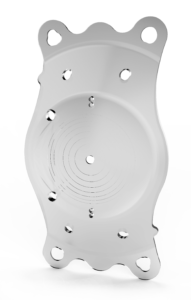
Properties of IPCL
- high-quality correction of vision with clear, sharp and focused images
- good vision under all lighting conditions
- no corneal detachment necessary
- does not cause dryness of eyes
- quick recovery
- short and painless recovery process
- moderately high to high or complicated refractive errors together with astigmatism and even presbyopia may be permanently and precisely corrected
- treatment is reversible – i.e. the artificial lens may be surgically removed from the eye
- Artificial lenses have been surgically implanted for more than 20 years, and the surgical experience of the specialist at the eye centre, Dr. Aus der Au, is correspondingly high
- The lens material stands out due to its extremely good tolerability
- Very high refractive errors may often be corrected in combination with laser treatment
Correction spectrum of the implantable contact lens IPCL
Myopia: up to -30 dioptres
Hyperopia: up to +15 dioptres
Astigmatism: up to 12 dioptres
Presbyopia: +1.5 to 4.0 dioptres

Lens replacement (Clear Lens Extraction)
The lens exchange can be performed in persons from about age 50 with myopia, hyperopia, astigmatism or presbyopia. The natural lens is replaced in these procedures by an artificial lens with optimal refractive power.
In times past, only «one-power lenses» were available, that provided a sharp image for only one distance range. Usually the power of the lens was chosen to give the patient good distant vision, while for the short range the lifelong use of glasses was still required.
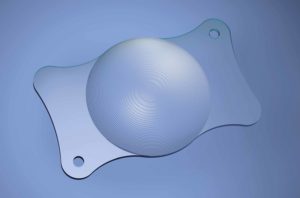
Thanks to a special surface design, the newest artificial lenses now offer good near and distant vision. They thus have the property of imitating the accommodation of the natural lens (adjustment of the refractive power). All eyesight defects (including presbyopia) can thus be corrected durably and precisely.
The implantation of artificial lenses is a pain-free operation. By the use of drops (no injection) the eyes are rendered insensitive. The eye’s own lens is replaced by an artificial lens with the best possible correction. Thanks to an advanced technology and a fast healing process that is further sustained by the application of special drops, the eyes can recover soon after the treatment, and an improvement in visual acuity can thus already be noted after a few days.
In the conventional method, the eye lens is siphoned off by ultrasound from the border of the cornea via an incision of only ca. 2.5mm (made with a scalpel) and the new artificial lens is then introduced into the eye via a small tube. It unfolds in the eye and takes the place of the normal eye lens.
This technique is also applied routinely in case of an opacification of the eye lens (cataract) and is among the most often performed operations worldwide.
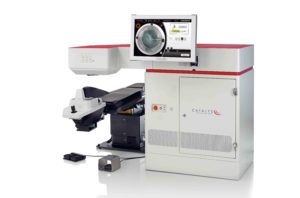
For a long time, this method remained almost witrhout major improvement, until finally, a few years ago, laser technology also conquered this domain. With the laser technology «Femto Phako» it is now possible to operate without a scalpel and to make the implantation of modern artificial lenses both more precise and simpler.
As one of the first eye centers of Switzerland, the Eye center Dr. Aus der Au has been using the novel technique called «Femto Phako» since 2012, which permits highly precise and tissue-sparing interventions on the eye. With this treatment, the tissue of the eye can be worked on even more precisely and sparingly. Several steps, previously carried out by the physician by hand, have been replaced. The lens exchange thus becomes, on the one hand, more precise, since the artificial lens is positioned more precisely, and on the other hand also safer, since laser incisions are always more precise than those guided by hand!
Find more on the subject «Laser-assisted lens surgery» here.
Properties of artificial lenses:
- Results are predictable with high precision
- The natural lens of the eye is removed and replaced by an artificial lens
- Combined sight defects can be corrected (e.g. myopia with astigmatism and presbyopia)
- Artificial lenses are also available in «toric» form, for severe corneal deformations
- Recovery is fast
- Artificial lenses have been surgically implanted for over 20 years, and hence the operative experience of the specialists of the eye center Dr. Aus der Au is considerable
- Excellent tissue compatibility
Range of correction provided by lens replacement
Artificial lenses allow corrections of myopia of -3.00 to -24.0, hyperopia of +1.00 to +12.0 diopters and astigmatism to 7.5 diopters. In combination with a laser treatment even more pronounced sight defects can be corrected.
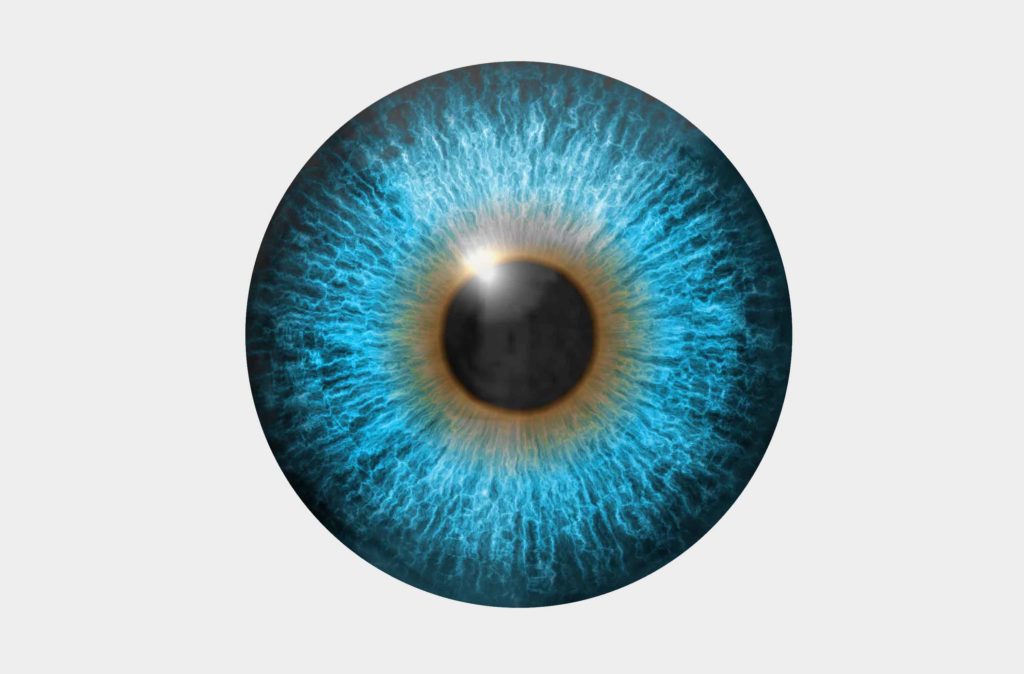
Information evening
We organize regular information sessions on the most modern technologies and safest procedures for the correction of visual defects.
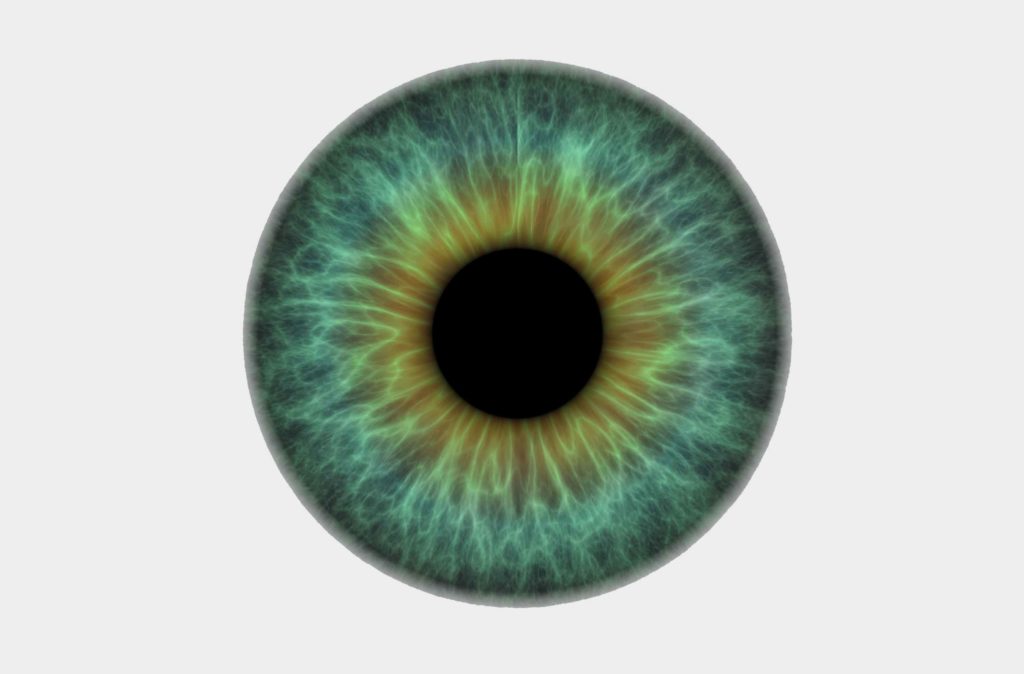
Free short test
As a free service we offer in our eye centers in Berne and Fribourg nonbinding free short tests. Book one now!
